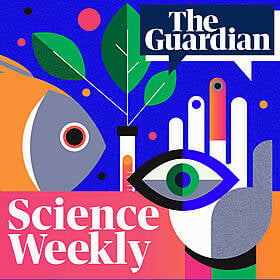
Into the photic zone: does a darkening ocean threaten marine life?
5 June - 14 minsVast areas of the ocean are getting darker, according to research based on satellite imaging. Marine ecosystems are governed by faint light changes – from mass nightly migrations to coral spawning cycles – so what happens when that light begins to fade? Ian Sample talks to Prof Tim Smyth from the Plymouth Marine Laboratory about why this darkening is happening and how life in the ‘photic zone’ – the sunlit upper layer that is home to 90% of marine organisms – could be profoundly affected Planet’s darkening oceans pose threat to marine life, scientists say. Help support our independent journalism at theguardian.com/sciencepod

Missing in the Amazon: the disappearance – episode 1
The British journalist Dom Phillips and the Brazilian indigenous defender Bruno Pereira vanished three years ago while on a reporting trip near Brazil’s remote Javari valley. The Guardian’s Latin America correspondent, Tom Phillips, investigates what happened to them in a six-part podcast series. Find episode 2 and all future episodes by searching for Missing in the Amazon. Help support our independent journalism at theguardian.com/sciencepod
26 mins
6 June Finished

The incredible world of animal medicine
Ian Sample meets Jaap de Roode, professor of biology at Emory University in Atlanta, and author of the book Doctors by Nature: How Ants, Apes and Other Animals Heal Themselves. De Roode explains how a chance discovery got him interested in animal medicine, the amazing ways that creatures use toxins to fight parasites and pathogens, and what humans have learnt about medicine from the animal world. Help support our independent journalism at theguardian.com/sciencepod
16 mins
3 June Finished

Your microbiome questions answered: part two
Ian Sample is joined by Dr James Kinross, colorectal surgeon and author of the book Dark Matter: The New Science of the Microbiome, to answer all your questions about gut health. In episode two, Kinross explains what else, beyond antibiotics, can damage our microbiome, how we can start to repair it, and gives his top tips for keeping our gut microbes happy. Help support our independent journalism at theguardian.com/sciencepod
18 mins
29 May Finished

Your microbiome questions answered: part one
Ian Sample is joined by James Kinross, colorectal surgeon and author of the book Dark Matter: The New Science of the Microbiome, to answer all your questions about gut health. In episode one, James explains how the gut microbiome gets set up, how it impacts our early development, and the effect antibiotics can have on our microbes. Help support our independent journalism at theguardian.com/sciencepod
17 mins
27 May Finished

The extraordinary promise of gene editing
Doctors in the US have become the first to treat a baby with a customised gene-editing therapy after diagnosing the child with a severe genetic disorder that kills about half of those affected in early infancy. Ian Sample explains to Madeleine Finlay how this new therapy works and how it paves the way for even more complex gene editing techniques. David Liu, a professor at the Broad Institute of MIT and Harvard and the inventor of these therapies, also describes the barriers that could prevent them reaching patients, and how he thinks they can be overcome. Help support our independent journalism at theguardian.com/sciencepod
16 mins
22 May Finished





















